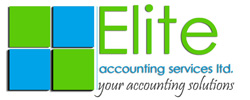Are rising tax bills eating into your profits? Many businesses in Kenya face high tax obligations that reduce the funds available for growth. But here’s some good news — with the right approach, you can legally lower your tax burden. One powerful way to do this is by making full use of capital allowances.
Capital allowances are tax deductions offered on certain business assets. If your company invests in machinery, buildings, or equipment, you could be eligible for tax relief — helping you retain more cash to reinvest into your operations. Let’s break down the main types of capital allowances and how they can help your business thrive.
1. Investment Deduction: Boost Your Savings from Day One
What is it?
This is a generous allowance that lets businesses claim up to 100% of the cost of specific assets — like buildings and manufacturing equipment — as a deduction in the year they are bought and installed.
How it helps:
Imagine a food processing company installs new machinery worth Ksh 8 million. By claiming the full amount as an investment deduction, they can reduce their taxable income significantly in that year — easing their tax pressure immediately.
2. Wear and Tear Allowance: Account for Asset Depreciation
What is it?
This allowance recognises that business assets wear out over time. It allows you to deduct a portion of the cost of your fixed assets each year.
Applicable examples and rates:
- IT equipment and software – 30% annually
- Light commercial vehicles – 25% annually
- Heavy machinery – 37.5% annually
Business benefit:
Say your delivery firm buys vans worth Ksh 4 million. With a 25% annual allowance, you’ll deduct Ksh 1 million from your taxable income every year for four years.
3. Industrial Building Allowance: Relief for Long-Term Infrastructure
What is it?
If your business constructs a factory, warehouse, or processing plant, you can claim 10% of the building’s cost each year for 10 years.
Example:
A beverage manufacturer builds a facility worth Ksh 30 million. Every year, they can deduct Ksh 3 million from taxable profits for a decade — a major relief over time.
4. Export Processing Zone (EPZ) Benefits: Tax-Free Opportunities
What is it?
Businesses operating inside an EPZ enjoy tax-friendly treatment to encourage exports. Benefits include:
- 10 years without paying corporate tax
- A reduced 25% corporate tax rate for the following 10 years
- No withholding tax on dividends for 10 years
- 100% investment deduction on qualifying assets
Example:
A company making garments for export inside an EPZ gets to grow profitably for a decade, without corporate tax liabilities — a significant competitive edge.
Want to maximize your capital allowance claims? Our experts can help you navigate Kenya’s tax system and boost your savings. Get in touch today!
